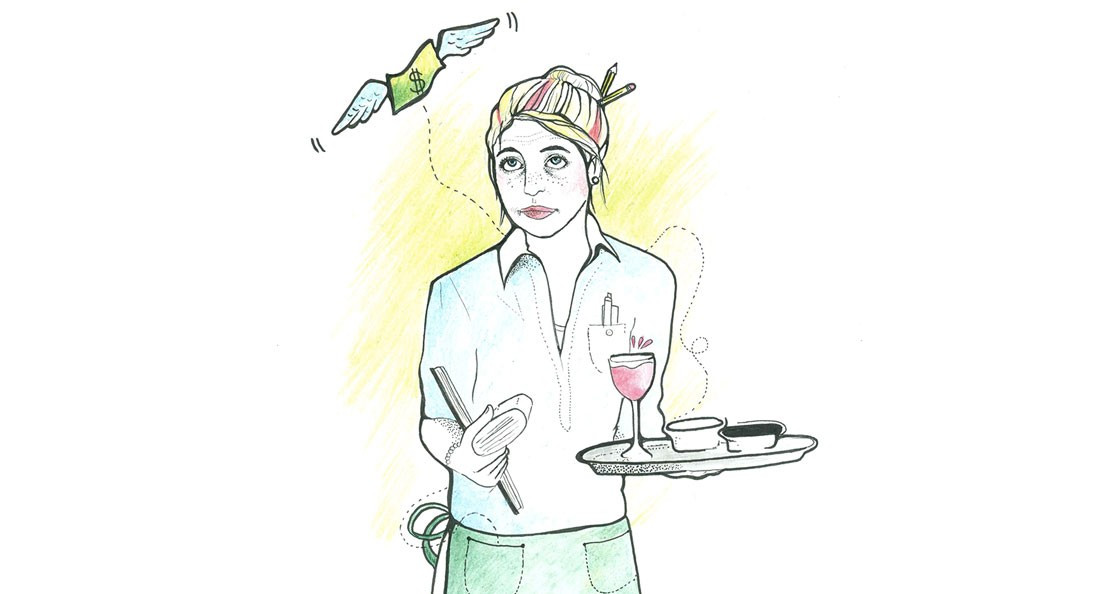Tip abolition is not the answer
Minimum wage hikes don’t reflect the cost of living
A recent minimum wage hike in Ontario has Manitoban students hoping they’re next. Wage hikes go hand-in-hand with the tip abolition movement, a development unfavourable to servers.
Proponents of the tip abolition movement say that having servers paid slightly above minimum wage, or charging diners a percentage from the total bill as a service charge (which the server would tip-out to share with the kitchen staff and other positions) is grounds for getting rid of tips, an income that people rely on.
Many university students get by on serving jobs. They don’t often have time to work much more than maybe 15 hours every week, which even at a $15/hour wage, would fall short of the income needed to afford rent and groceries.
To abolish tips and pay servers two to three dollars above the minimum wage would put salaries at $18/hour, which is far less compared to the roughly $30/hour many currently make with tips in a casual fine dining restaurant such as Earls or Moxie’s. Similarly, a service charge wouldn’t make the cut, as more of it would be split with the rest of the staff.
Proponents of the tip abolition movement maintain that it is time for the restaurant industry hierarchy to go. However, they often ignore that, like most workplaces, restaurants function based on a meritocracy: bussing tables may be a lot of grunt work, but it is an entry-level position, and, as with most entry-level positions, people are expected to put in the work to move up.
Serving isn’t easy. It requires a very good short-term memory and the ability to rapidly multitask, all the while staying pleasant. It also requires remembering the faces and names of regulars, and what they like to drink.
Tipping incentivizes servers to make more sales by using their knowledge of the menu and by giving individualized service to guests. Without the financial incentive, many argue that it would also encourage people to work positions where they have less to remember, or that require less emotional labour.
Front-of-house employees find that customer interaction can be emotionally taxing, and they are put at a greater risk of losing their jobs due to guest perception. Back-of-house employees, while working long hours and often dealing with high levels of stress during a rush, do not have to deal with this.
Some may squawk that tips are unfair to students who do not have serving jobs, for instance, those with poor people skills, or those with social anxiety. These qualities are a barrier in many jobs, not just serving. In fact, according to a 2015 study by Deming, good social skills are generally rewarded by further job opportunities.
One of the main arguments for the tip abolition movement is the income instability, and that the server is essentially working for the customer rather than for their employer. It’s an employer’s duty to ensure a livable wage.
Charls Morin is the arts and culture reporter at The Uniter. They also work as a server after bussing tables for four years and moving up in the ranks thereafter.
Published in Volume 72, Number 16 of The Uniter (February 1, 2018)








